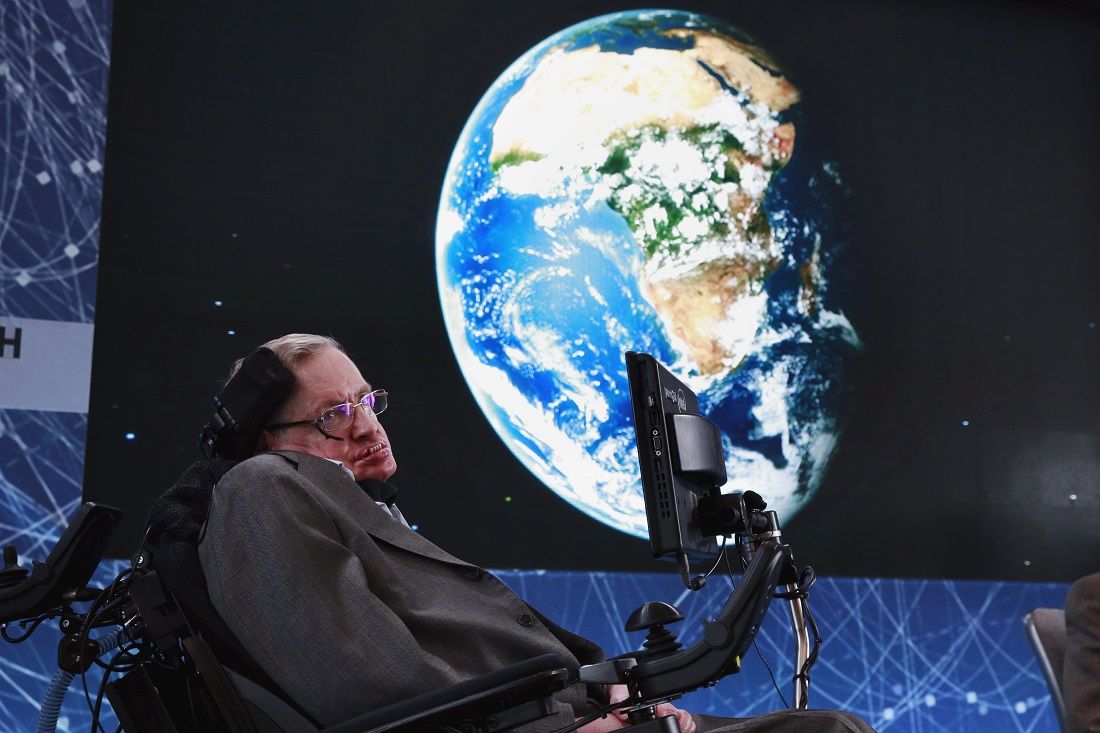
Updated | Renowned physicist Stephen Hawking has warned that humanity needs to become a multi-planetary species within the next century in order to avoid extinction.
Hawking made the prediction in a new documentary called Expedition New Earth, which is set to be released this summer as part of the BBC's Tomorrow's World science season.
Existential risks include climate change, overpopulation, epidemics and asteroid strikes, according to Hawking.
In his program, Hawking will explore the latest advances in astronomy, biology and rocket technology that will make it possible to live on Mars—from plasma rockets to human hibernation.
"In this landmark series, Expedition New Earth, [Hawking] enlists engineering expert professor Danielle George and his own former student, Christophe Galfard, to find out if and how humans can reach for the stars and move to different planets," the BBC said. "The journey shows that Prof Hawking's ambition isn't as fantastical as it sounds—that science fact is closer to science fiction than we ever thought."
Efforts to create a human colony on Mars are already underway, with billionaire Elon Musk hoping to establish a settlement within the next few decades through his aerospace firm SpaceX. "I don't have a doomsday prophecy," Musk said in 2016, "but history suggests some doomsday event will happen."
Hawking has repeatedly called for humans to colonize the moon and Mars as an insurance policy against an apocalyptic catastrophe on Earth. "The moon could be a base for travel to the rest of the solar system," Hawking said in a 2008 lecture marking NASA's 50th anniversary, adding that Mars would be "the obvious next target."
Hawking predicted last year that the chance of a species-ending event on Earth was a "near certainty" when all possibilities were taken into consideration.
"Although the chance of disaster to planet Earth in a given year may be quite low, it adds up over time, and becomes a near certainty in the next 1,000 or 10,000 years," Hawking told the Oxford University Union in November.
"By that time, we should have spread out into space and to other stars, so a disaster on Earth would not mean the end of the human race."
Despite the dire warning, Hawking did have some positive news for the assembled students. He pointed to how our fundamental understanding of the universe has advanced in his lifetime and said it is a "glorious time to be alive and doing research into theoretical physics."
He added: "Our picture of the universe has changed a great deal in the last 50 years and I am happy if I have made a small contribution. The fact that we humans, who are ourselves mere fundamental particles of nature, have been able to come this close to understanding the laws that govern us and the universe is certainly a triumph."
Update: This article has been update to include a comment from the BBC on the Expedition New Earth series.
Uncommon Knowledge
Newsweek is committed to challenging conventional wisdom and finding connections in the search for common ground.
Newsweek is committed to challenging conventional wisdom and finding connections in the search for common ground.
About the writer
Anthony Cuthbertson is a staff writer at Newsweek, based in London.
Anthony's awards include Digital Writer of the Year (Online ... Read more
To read how Newsweek uses AI as a newsroom tool, Click here.








